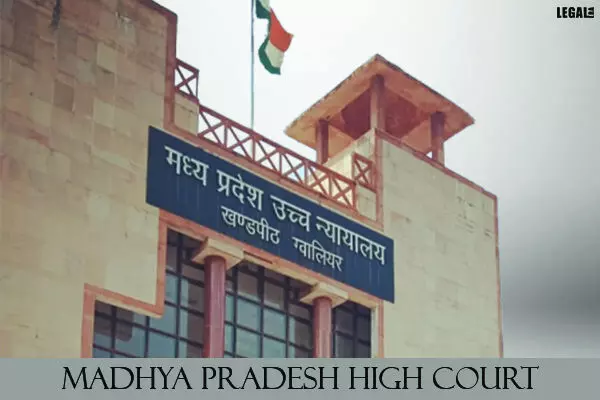- Home
- News
- Articles+
- Aerospace
- Agriculture
- Alternate Dispute Resolution
- Banking and Finance
- Bankruptcy
- Book Review
- Bribery & Corruption
- Commercial Litigation
- Competition Law
- Conference Reports
- Consumer Products
- Contract
- Corporate Governance
- Corporate Law
- Covid-19
- Cryptocurrency
- Cybersecurity
- Data Protection
- Defence
- Digital Economy
- E-commerce
- Employment Law
- Energy and Natural Resources
- Entertainment and Sports Law
- Environmental Law
- FDI
- Food and Beverage
- Health Care
- IBC Diaries
- Insurance Law
- Intellectual Property
- International Law
- Know the Law
- Labour Laws
- Litigation
- Litigation Funding
- Manufacturing
- Mergers & Acquisitions
- NFTs
- Privacy
- Private Equity
- Project Finance
- Real Estate
- Risk and Compliance
- Technology Media and Telecom
- Tributes
- Zoom In
- Take On Board
- In Focus
- Law & Policy and Regulation
- IP & Tech Era
- Viewpoint
- Arbitration & Mediation
- Tax
- Student Corner
- AI
- ESG
- Gaming
- Inclusion & Diversity
- Law Firms
- In-House
- Rankings
- E-Magazine
- Legal Era TV
- Events
- News
- Articles
- Aerospace
- Agriculture
- Alternate Dispute Resolution
- Banking and Finance
- Bankruptcy
- Book Review
- Bribery & Corruption
- Commercial Litigation
- Competition Law
- Conference Reports
- Consumer Products
- Contract
- Corporate Governance
- Corporate Law
- Covid-19
- Cryptocurrency
- Cybersecurity
- Data Protection
- Defence
- Digital Economy
- E-commerce
- Employment Law
- Energy and Natural Resources
- Entertainment and Sports Law
- Environmental Law
- FDI
- Food and Beverage
- Health Care
- IBC Diaries
- Insurance Law
- Intellectual Property
- International Law
- Know the Law
- Labour Laws
- Litigation
- Litigation Funding
- Manufacturing
- Mergers & Acquisitions
- NFTs
- Privacy
- Private Equity
- Project Finance
- Real Estate
- Risk and Compliance
- Technology Media and Telecom
- Tributes
- Zoom In
- Take On Board
- In Focus
- Law & Policy and Regulation
- IP & Tech Era
- Viewpoint
- Arbitration & Mediation
- Tax
- Student Corner
- AI
- ESG
- Gaming
- Inclusion & Diversity
- Law Firms
- In-House
- Rankings
- E-Magazine
- Legal Era TV
- Events
Power to compound an offence either before or after the institution of proceeding, but not after conviction: Madhya Pradesh High Court

Power to compound an offence either before or after the institution of proceeding, but not after conviction: Madhya Pradesh High Court
The Madhya Pradesh High Court, Indore Bench recently held that pursuant to Section 279(2) of the Income Tax Act, the prescribed Authorities have the power to compound an offence either before or after the institution of proceeding against the assessee but certainly not after their conviction.
Interpreting the guidelines issued for compounding of the offence under Direct Tax Laws, 2019 in the context of Section 279(2) of the Act, the division bench observed-
Clause 7 of the guidelines provides eligibility conditions for compounding and clause 8 provides a list of certain offences which are normally not be compounded. In order to become eligible for compounding clause 7(v) says that there has be to an undertaking by the assesses for withdrawal appeal filed by him, if it is related to the offence sought to be compounded. Likewise, clause 8(iii) provides that offence committed by a person for which he was convicted by a Court of law under direct taxes laws compounding cannot be done. As on today, the petitioners are convicted persons and in appeal, only the sentence has been suspended not the conviction, therefore, respondent No. 1 has rightly declined to compound the offence.
The Petitioners were convicted for offence punishable under Section 276C(i) of the Income Tax Act by the lower court. Challenging their conviction, they preferred an appeal before the appellate court. Simultaneously, the Petitioners also moved an application before the Authority concerned for compounding of offence. They also moved an application before the appellate court under Section 320(5) CrPC seeking permission for the compounding of offence.
The Authority rejected the application of the Petitioners on the ground that their request could not be considered as they were already convicted. Thereafter, even the appellate court rejected their application under Section 320(5) CrPC, holding that it could not direct the Authority for compounding the offence. Aggrieved, the Petitioners moved the High Court.
Examining the submissions of parties and documents on record, the Court concurred with the decision of the Authority to not compound the offence of the Petitioners. The Court noted that a combined reading of the relevant provisions under the guidelines concerned and Section 279(2) of the Act would reveal that the compounding of offence after conviction is not prescribed. The Court further observed that the benefit under the guidelines could not be claimed as a matter of right-
By conjoint reading of section 279(2) and clauses 7(v) and 8 (iii), it is explicit that the Income Tax Authorities have the power to compound the offence either before or after the institution of the proceedings but certainly not after the conviction. Clause 4 of the policy also provides that compounding of offence is not a matter of right, however, the offence may be compounded by the competent authority on satisfaction prescribed in these guidelines. It is also important to see Clause 7.(ii) which provides that no application of compounding can be filed after the end of 12 months in which a prosecution complaint, if any, has been filed in the court of law.
With the aforesaid observations, the Court refused to interfere with the impugned order and accordingly, the petition was dismissed.



